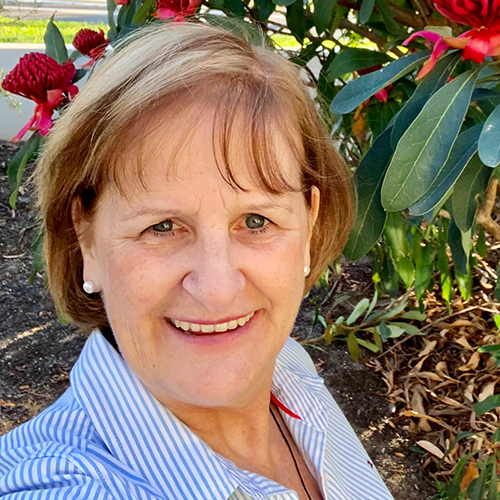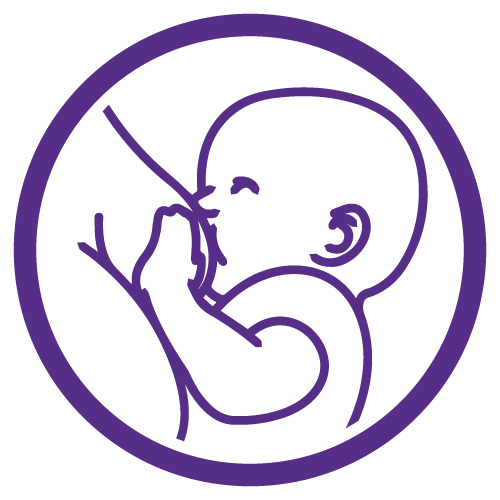 IBCLC Detailed Content Outline: Development and Nutrition Focused CERPs - Section I
IBCLC Detailed Content Outline: Development and Nutrition Focused CERPs - Section I
Access CERPs on Development and Nutrition for the IBCLC Detailed Content Outline recertification requirements. Enjoy convenient on-demand viewing of the latest Development and Nutrition focused IBCLC CERPs at your own pace.

Responsive Breastfeeding: The Key to Optimal Infant Development

Martina Donaghy is a registered midwife of 30 years, an IBCLC of 22 years and a Senior Midwifery Lecturer of 17 years’ experience. During the past two decades her main posts as a hospital based Infant Feeding Specialist and a Midwifery Lecturer has seen a focus on educating registered midwives, student nurses, midwives, paediatric and Specialist Community Public Health nurses on the importance of breastmilk and breastfeeding, ensuring these students are equipped to support the breastfeeding mother in achieving her feeding goals. Martina has led and supported her university to achieve successful UNICEF UK Baby Friendly accreditation for the BSc Midwifery and Specialist Community Public Health Nursing programmes. She also teaches on the Midwifery Master’s program specialising in the promotion and support of physiological birth, breastfeeding, biological nurturing, and maternal, infant attachment. Recent publications include a chapter in Examination of the newborn and neonatal health, titled Helping parents make decisions regards to infant feeding and cosleeping. Her most recent midwifery article focused on supporting maternal and infant physiology after birth. She is originally from Australia and has resided in the United Kingdom for 30 plus years.
From the moment of conception, maternal and fetal physiology is intrinsically linked in a synergistic partnership, with optimal infant development dependent on this relationship continuing well into the infants first 1001 days. A key pivotal facet of this reciprocal relationship is responsive breastfeeding. Responsive breastfeeding is far more than a way of infant feeding, but a sensitive synchronous parenting style that secures optimal growth, nutrition, immune development, infant /maternal attachment, whilst fostering successful lactation and the development of positive feeding habits well into infancy. This presentation will explain what is meant by responsive breastfeeding, exploring the science behind how this type of feeding promotes optimal infant health.
The presentation will conclude with an exploration of the wider benefits of responsive breastfeeding, examining the possibility of this type of feeding style contributing to improving several public health issues, in particular childhood aversity and obesity. Lastly, recommendations for promotion and support of responsive breastfeeding will be outlined.
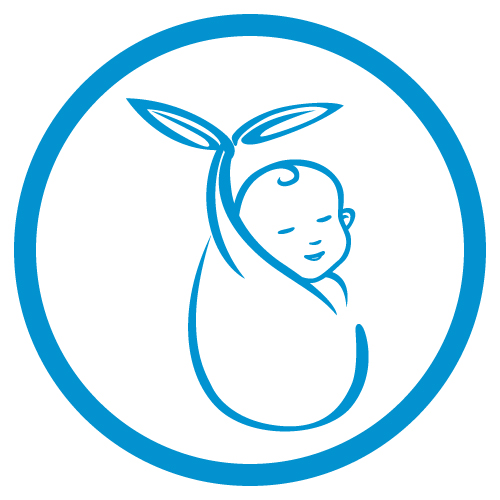
View Details / Enroll


Bryna is a lactation consultant, mentor, educator, and birth doula in the Pacific Northwestern United States. They are active in their community as an advocate for mutual aid, reproductive justice, and reduction in barriers to care. They also own and manage an inclusive private practice. As a member of both Queer and Neurodivergent communities, offering inclusive care on every level is very important to Bryna. Their vision is to offer information and tools to providers to build a community of comprehensive, concordant, and individualized care for all families in the perinatal period.
Topic: Breastfeeding With Ease: The Impact of Infant Reflex Emergence and Integration - [View Abstract]
Topic: Rhythmic Movement for Breastfeeding Function - [View Abstract]
Disorganized or absent infant reflexes can create challenges for breastfeeding/chestfeeding. This presentation takes a close look at the role of movement in the integration of disorganized infant reflexes and the use of rhythmic movement as a method for overcoming infant feeding challenges. This talk also covers socio-cultural impacts of trauma, lack of opportunity for movement, and modern care system barriers to reflex integration.
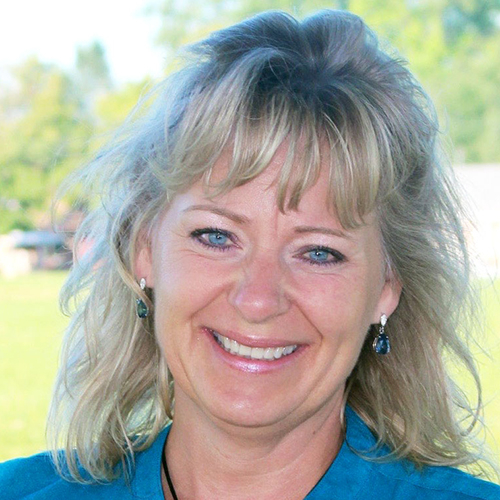
Rhythmic Movements: A Second Chance to Integrate Primitive Reflexes

Experience lively and informative workshops presented by Liz Jones-Twomey, a Blomberg International Rhythmic Movement Instructor/Consultant, ENVoY Classroom Management trainer, and recently retired elementary school teacher from the WRDSB in Canada - with over 33 years of experience! Liz has devoted a great deal of time and effort to expanding her knowledge of “brain-based” movement over the course of her career.
Liz has been a featured speaker on 4 continents and is co-creator of the following multiple award-winning movement-to-music CDs: “Catch a Brain Wave Fitness Fun;” “Smart Fitness, Smart Foods;” “Baby Connections Song Time;” and “Wiggle Jiggle Fitness Fun.” Liz has been honoured with the prestigious International Teaching Through Movement Award for her work with Brain Gym® and ‘best practice’ teaching strategies. She was presented with the W.T. Townshend Award of Excellence for her innovative teaching style, and is also a recipient of the Speedo National Fitness Instructors Award.
Liz recently participated in an 8-week research study with Queen’s University, ON , Canada, examining self-regulation and reflex integration with her Rockin’ Reflex Video Program for children ages 4 to 6 years old. This study demonstrated at a highly significant statistical level , that the rhythmic movements practiced in the Rockin' Reflex videos helped to integrate students' primitive reflexes and improved Self-Regulation skills.
Liz’s enthusiastic presentation style provides for plenty of highly engaging, hands-on, practical experiences for participants, as well as ideas about reflex integration and songs and movements that can be implemented immediately.
Primitive reflexes are necessary for an infant’s survival. These reflexes typically become integrated in the first year of life as the child instinctively practices rhythmic movements. If these reflexes do not become integrated into daily functioning, they may impede the development of more mature reflexes, causing difficulties in self-regulation, social, emotional, and academic aspects of a child's life. Studies have illustrated that rhythmic movements can give a child a second chance to integrate their primitive reflexes (Blythe, 2005; Grzywniak, 2017).
Liz Jones-Twomey, along with her musical partner Ron Hiller and researcher Susan Overvelde, conducted an eight-week research study with children ages 4 to 6. This study supports the idea that the primitive reflexes of school aged children can be integrated by practicing rhythmic movements which mimic those infants naturally do. The Blomberg Rhythmic Movements and developmental movements practiced in the Rockin’ Reflex videos used in the study, helped to integrate student’s primitive reflexes and improved Self-Regulation skills.
There was a statistically significant improvement in post-intervention primitive reflex scores, suggesting that the rhythmic movements practiced in these videos helped integrate children’s primitive reflexes. There were also statistically significant improvements in behavioural, cognitive, and emotional self-regulation scores, suggesting that by integrating primitive reflexes, children were able to self-regulate better.


Leslie Parker has a dual position at the College of Nursing and the College of Medicine at the University of Florida where she is a professor. She has been a neonatal nurse practitioner since 1990 and continues to practice as a neonatal nurse practitioner in the NICU at UF Health. She was the tract coordinator of the neonatal nurse practitioner program from 1992-2011. She has been involved in human milk research for nearly two decades and focuses on improving milk production in mothers of critically ill and premature infants. She is funded by the National Institutes of Health for her team’s work regarding neonatal nutrition including the risk of feeding tube contamination, risks and benefits of gastric residual evaluation and optimizing consumption of breast milk for preterm infants.
Until recently, routine monitoring of gastric residuals has been standard care in most neonatal intensive care units (NICUs). Rationale for this practice includes early recognition of feeding intolerance and necrotizing enterocolitis. However, gastric residuals are often used to direct feeding decisions and thus their use can result in delays and interruptions in feeding resulting in an increased risk of complications. Recent evidence suggests that the routine monitoring of gastric residuals prior to every feeding may not be clinically necessary and other clinical indicators may be sufficient to monitor for feeding intolerance and necrotizing enterocolitis. This presentation will describe practices clinicians are currently using to monitor gastric residuals In addition, an overview of current evidence including the risks and benefits of monitoring gastric residuals, alternatives to monitoring gastric residuals, and how to best change unit practice in order to decrease the routine use of aspirating and evaluating gastric residuals prior to every feeding will be presented.

View Details / Enroll
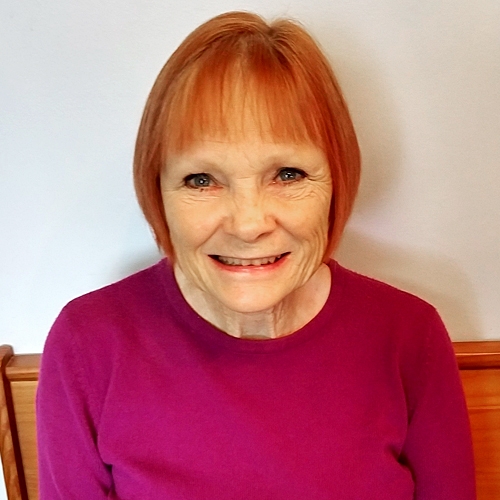
Sensory Integration and Breastfeeding

Nancy has been providing breastfeeding help and support for 40 years and has been a national speaker for 30. She has been a perinatal educator and consultant since the late 1970’s. Her second career is that of a Marriage and Family Therapist. Her passion is to explore the larger picture of the mother-baby dyad in the context of the breastfeeding relationship.
Topic: Teens and Breastfeeding - [View Abstract]
This session will look at sensory integration problems, now known as Sensory Processing Disorder. How might these difficulties impact the breastfeeding dyad and the family? We will describe this and present ideas on how to minimize the problems and support breastfeeding.


Mim Ochsenbein, MSW, OTR/L has been a practicing pediatric occupational therapist for over 25 years. She is the current Clinical Director of STAR overseeing a multi-discipline team, and previously was STAR's Director of Education. She received her BSc in Occupational Therapy from the University of Southern California (USC) in 1996 and her MSW from the University of California-Los Angeles (UCLA) in 2012. She has received advanced training in sensory integration (SIPT certification, STAR ProCert1, STAR ProCert2), listening therapy (Therapeutic Listening, iLs), feeding therapy (SOS), DIR, mental health (DC:0-5 Diagnostic Classification of Mental Health Disorders of Infancy and Early Childhood), and infant massage (CIMI). Her work in occupational therapy with children and youth has occurred in a variety of settings including early intervention, school based, clinic based, mental health and private practice. As a social worker, she provided case management, program development, and program management. Mim has taught both university level (California State-Dominguez Hills) and professional continuing education courses since 2013, spoken internationally, and has co-authored works for professional publications. She has been in her current role at STAR Institute since 2017 at the invitation of Dr. Lucy Jane Miller, PhD, FAOTA, OTR.
Having an understanding of the body’s sensory systems is an important part of understanding more about early childhood development. Sensory processing plays an important role in regulation, relationship and skill development. This presentation provides a look at the inter-connectedness of sensory processing-regulation-relationship by examining shared neurology and impacts on developmental trajectories.
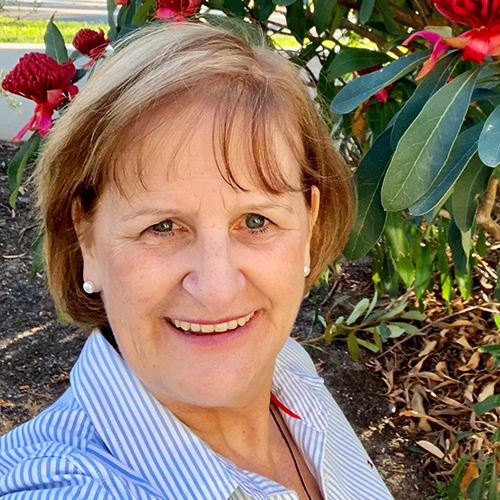

Decalie is a Registered nurse/midwife with over 40 years of experience collectively working as an IBCLC in a clinical roles within Primary Care and Community Health. Currently working as a Child & Family Health Clinical Nurse Specialist 2 in busy Community of the Blue Mountains, NSW Australia. She supports health professionals and parents with education of lactation/infant feeding/settling and behavioural issues for infants and children 0 to 5 years of age as a clinical specialist. A current BFHI Assessor. Has shared her extensive clinical experience in workshops at many ILCA, LCANZ and ABA conferences over the years. Her passion in support for mothers and babies.
Decalie has volunteered for Board of Director for the Australian Lactation Consultants Association (ALCA) 7 years on the ILCA International Lactation Consultant Association, last 2 years as President. On the Inaugural World Trends Initiative WBTI AUS Core group. Advisory committee for International Childbirth Education Ass. ICEA. World Health Organisation working group for revision of BFHI Education package, WABA advisory group. ILCA Nominations committee chair, IBCLC Care award Co chair.
Enjoying the next level of parenting being Mimi to her 3 year old grandson Cole.
The breastfeeding journey for a woman and her baby is very special. Mothers who may be larger-breasted and lactating often have special breastfeeding needs and issues. This online session empowers clinicians with supportive tools to help these women successfully breastfeed. This session will enable clinicians to utilize simple, practical techniques, tips, explore the challenges of larger breasts during lactation. Attendees will develop their advanced breastfeeding counseling skills to manage individual situations and provide the unique support necessary. The research shows that if mothers with above average weight are provided with the appropriate breastfeeding management and support early, their breastfeeding experience will be enhanced and sustained. This sensitive session is designed to aid clinicians in developing their own practical breastfeeding support kit, as well as honing specific skills for a positive outcome when supporting larger breasted women to breastfeed their babies.

Slow Weight Gain in the Early Days of Breastfeeding

Patricia Díaz L., Woman passionate about accompanying Women and Families through their Conscious and Connected gestational, birthing and parenting journeys. She is a trained Pediatrician, IBCLC and Doula. Graduated as a Surgeon physician and Pediatric Specialist from the Central University of Venezuela, at the main Children’s Hospital of the country; JM de los Ríos. From her formative years, she fell in love with the dynamic process of Breastfeeding and the unique physical, nutritional, immunological, qualities of it, along with the transformative emotional and spiritual bond that formed between the new parents and their baby: "Being a witness to that first magical and intimate human contact, is one of the most wonderful sensations in the world; I have ever experienced”. Dr. Patricia Díaz graduated as Promoter and Consultant of the Lactation Center ""Mi Gota de Leche” ( “ My Drop of Milk” ) at the Hospital J.M. de los Ríos, with the endorsement of UNICEF. She was part of the First Cohort of Diplomats in Breastfeeding and Complementary Feeding Practices, of the Faculty of Medicine, at the Central University of Venezuela. Member of the American Academy of Breastfeeding Medicine (ABM) and the International Lactation Consultant Association (ILCA). Trained as a Doula, at the Auroramadre Center in Venezuela. National and International speaker. With more than a decade of experience, Patricia, strongly advocates for Human Lactation Education, at her private practice in Venezuela, where she currently is the Chief of Pediatrics at La Trinidad Medical Teaching Center. At this center, she has co-designed the Respectful Birthing Protocol (to honor the Sacred Hour, Skin to Skin and Rooming in; most recently updated alongside Neonatology Department, to adjust it for COVID19 context). Also through her social media platform @PediatríaAutana (Tree of Life), she educates, advocates for Breastfeeding families and designs educational tools for Parents and Caregivers, Families and Teachers, in the most innovative formats, adjusted to their needs, concerning topics associated with Prenatal Prolactation Prep, Human Lactation, Parenting, Growth and Neurodevelopment, Pediatrics.
Topic: Slow Weight Gain in the Early Days of Breastfeeding - [View Abstract]
The early days of a breastfeeding journey, especially if it is the first one and there is not enough breastfeeding culture or support of the new family, bring challenges and risk factors for an unwanted early termination. Among all the causes for an early abandonment of exclusive breastfeeding, there is the ghost of insufficient milk supply, associated in popular belief (and unfortunately) sometimes also in professional health provider’s belief, with little or no evidence-based information on human lactation.
In order to make an appropriate and timely approach to a slow weight gain baby, we must take into consideration anatomical, functional and behavioral/emotional factors. Learn more about how to establish an appropriate nutritional diagnosis, based on the use of globally standardized anthropometric index, for exclusively breastfed children, factors that may contribute to a misperception of slow weight gain in a breastfed child, the difference between failure to thrive and slow weight gain and how to establish safe nutritional recovery strategies, focused on the dyad and aimed at preserving breastfeeding.

Spirited or Calm: How Temperament Impacts Breastfeeding/Chestfeeding and Parenting

Andrea Herron, is one of the first and longest continuous certified pediatric nurse
practitioners in the United States. After more than 40 years working with breastfeeding
mothers and their babies and teaching parenting classes, she is among one of the
most experienced consultant in the field of lactation. Regardless of the issue or concern,
Andrea has guided thousands of mothers to meet their breastfeeding and early parenting
goals through support groups, lactation consultations, and childrearing education. After
receiving a Master's in pediatric nursing from UCLA, Andrea became an early pioneer in
the back-to-breastfeeding movement, and educated health professionals as an instructor
in the UCLA lactation educator course, all over the United States. Her private lactation practice,
Growing with Baby in San Luis Obispo, California, was used as the national model for
private practices by Women Infant and Children (WIC), the federally funded health and
nutrition program. One of her favorite and most popular topics she teaches through her
Growing with Baby parenting groups is, Understanding Your Infant’s Temperament.
This topic and many of the other topics she teaches are included in her newly released
book, Suckle, Sleep, Thrive: Breastfeeding Success Through Understanding Your Baby’s
Cues. Co-written with Lisa Rizzo.
Andrea has been married to Larry Herron, an orthopedic spine surgeon,
for over 35 years. They are the proud parents of a grown son,
two Labradors, a cat, and parrot. The couple reside in Shell Beach,
California.
Topic: The Relationship Between Parent/Infant Synchrony, Breastfeeding Success and Infant Cues - [View Abstract]
Knowledge about infant temperament has been known since the early 1960s with the release of the ground breaking research of Dr. Alexander Thomas, Stella Chess and Herbert Birch and yet, among the general public there seems to be a lack of information about this important body of science (temperament). When parents perceive their baby as content and seemingly non-demanding, they may be shocked and dismayed to find out during a routine well baby visit that the baby is underweight or is failing to thrive. They thought the baby was content because she didn’t give clear cues, and as a result, was underfed. In another scenario, when the baby is irritable despite frequent feeding mothers may lose confidence and question the quantity and quality of their milk and prematurely wean. The behavior of the intense baby that screams on the scale when weighed and is tortured by the bath is overwhelming and misunderstood. When behaviors are misread or inappropriately responded to, optimal physical and emotional development is potentially affected. This presentation will help the learner understand the classic nine temperament traits and how they are grouped into classifications. The listener will learn about the topic of “goodness of fit “and its impact on the long-term emotional health of the infant and developing child. Finally, with case study examples, the emphasis is on how temperament impacts breastfeeding/chestfeeding.

View Details / Enroll

Sucking Disorders in Children with Neurological, Muscular, Genetic or Anatomical Diseases

Lina Mazzoni is a Lactation Consultant, IBCLC with a Bachelors Degree in Speech and Language Therapy. Since 2013 she has been working primarily with children and specialized in the treatment of sucking, swallowing and feeding disorders. In 2019 she became a Lactation Consultant to be able to work equivalent with the children and the mother. As a working mom she worked part time as a Lactation Consultant in a hospital in Hamburg, started her own privat practice in 2019 and since october 2021 she works exclusively in her private practice as a lactation consultant and SLT. She also works as an Instructor in lactation education and further education regarding feeding developement and disorders . Lina has two children and lives with them and her husband in Hamburg, Germany.
Topic: Sucking Disorders in Children with Neurological, Muscular, Genetic or Anatomical Diseases - [View Abstract]
For an infant, breast/chestfeeding and sucking is the normal form of feeding. If an infant is born with an underlying neurological, muscular, genetic or anatomical disease or if neurological changes occur due to complications, this form of feeding may be disturbed. Since the interaction of breathing-sucking-swallowing requires the coordination of over 60 muscles and several cranial nerves, even small changes in physiology can throw the system out of balance. Congenital-Heart-Disease, Down Syndrome or a disorder of the central nervous system due to pre- or postnatal trauma, infection or structural defect differ in their symptoms, but what they all have in common is that sucking and oral intake of food can be impaired. When working with infants or lactating parents, children with sucking disorders due to an underlying disease may also be present. It is important to know which underlying diseases can have an impact on sucking and how the children and families can be supported to enable or improve oral feeding and to be able to assess which interdisciplinary team would be useful to ensure the best possible care.











